Nurse Executive Online RN to MSN Degree Program Overview
Become a Nurse Executive with our Online RN to MSN Track.
More than ever, there is a need for educated, experienced nurses to assume senior management and leadership positions in healthcare systems, at other organizations, even in government.
As a Registered Nurse, you already have the key qualities and values that form the basis of leadership.
Now it is time to learn the management techniques and business skills that will help you be an even more effective leader. And it all begins by earning your Master of Science in Nursing degree with the RN to MSN- Nurse Executive track at NMC.
Nursing salaries for nurse executives vary widely in the U.S. and are based upon many factors including geography, job description, specialty and experience. The Bureau of Labor Statistics indicates the median salary in May 2024 in the United States for Medical and Health Services Managers was $117,960 ($56.71 per hour), with a much faster than average projected job growth of 23 percent between 2024 and 2034.
Want to learn more? Watch our most recent Virtual Information Session.



